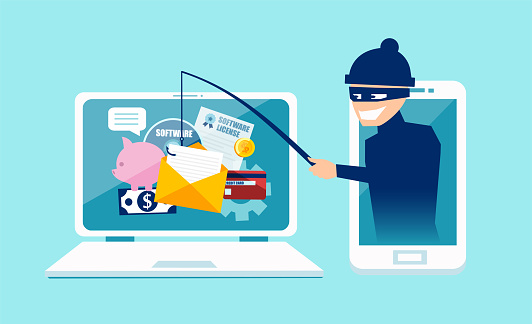
A lot of our members often organise in-house events like morning tea, Christmas and Easter festivities to boost employee engagement within their workplace. This may involve a lot of online banking transactions for catering orders, in-house celebrations and other miscellaneous expenses.
Members need to be careful with online shopping events as these transactions give cybercriminals several opportunities to scam you.
Take a look at a few measures to mitigate the risks of getting scammed by cyber-criminals when making online payments.
Think twice before you click
Exercise caution when clicking promotional emails and texts. If you receive an offer, check to see if it is coming from an actual retailer and uses a web address that matches the company's online store.
Consider your payment options
Using a credit card instead of a debit one for online transactions is a better option. This is because a credit card has more consumer protections in case things don't go as per plan. Also, using third-party payment options like Apple Pay or Google Pay wherever possible is advised to protect your credit card information.
Set alerts for your transactions
This is the most important step for all members who use corporate credit cards. Setting up alerts for each and every online transaction can help members identify suspicious activities.
Use secure Wi-Fi
Members should try and use only secure Wi-Fi networks like their office premises to make online transactions. Use of public Wi-Fi networks including coffee shops, shopping centres and airports is not recommended as they are not secure enough to save your details from cyber-criminals.
Enable multi-factor authentication
There has been a lot of conversation around having the most appropriate passwords to protect your systems. Creating long and unique passwords with numbers and symbols is just the first step to protection. Members should ensure the use of multi-factor authentication (MFA) wherever possible for all accounts. It plays a significant role in data security as it makes stealing information harder for an average scammer.
How to make a password strong?
- Use first alphabets of a phrase instead of a word – For example 'You can't judge a book by its cover' to 'y c j a b b i c'
- Change two letters into capital letters - y c J a b B i c
- Change letters into digits - y c j 4 b b i c
- Use a special character - D y c j # a b b i c
- Go to at least 12 characters - Y c j @ a 1 b b i # c 5
For support on improving your local government's cyber-security practices, contact your account manager.